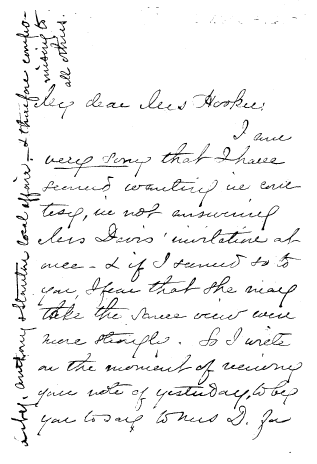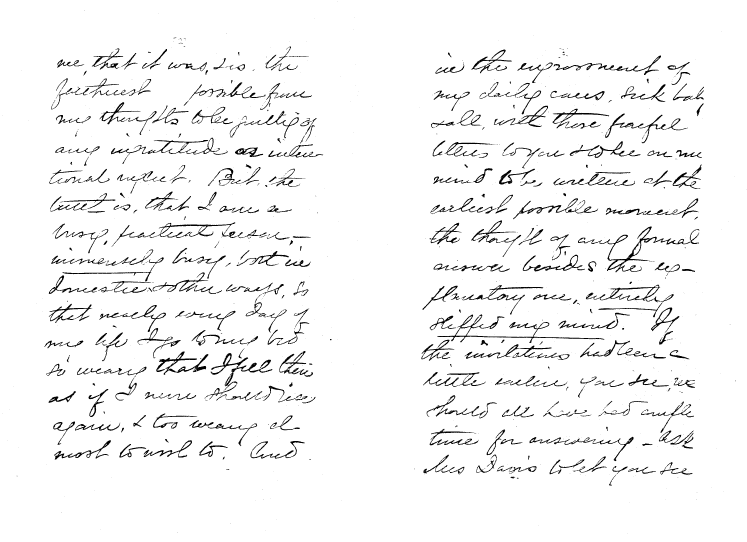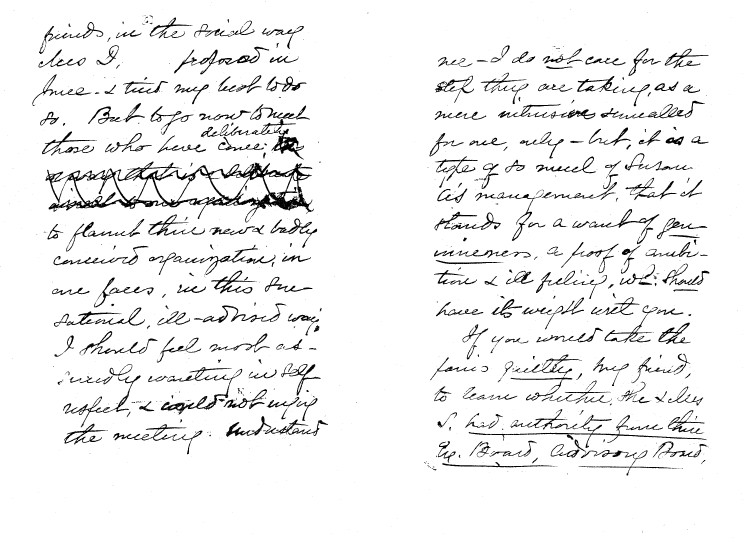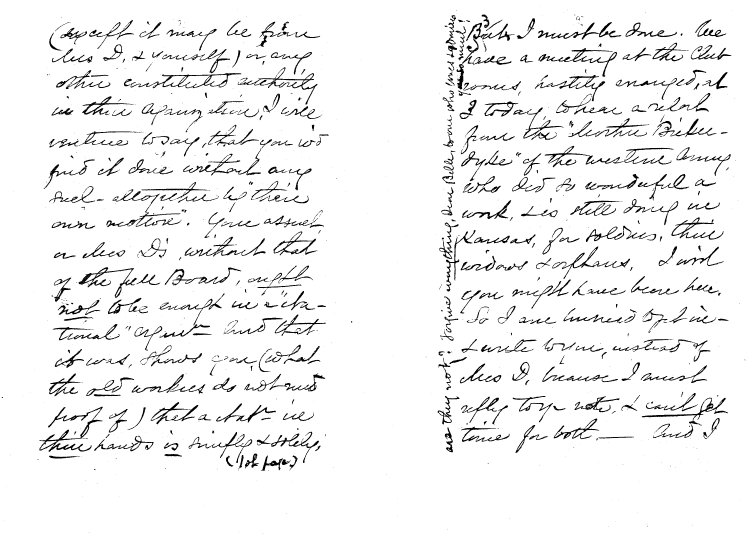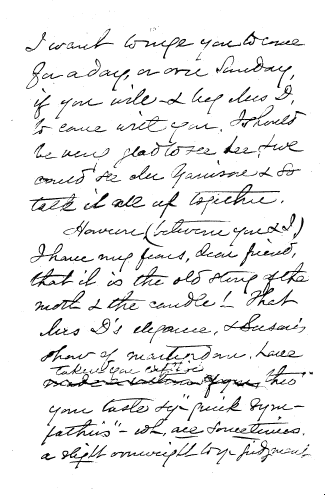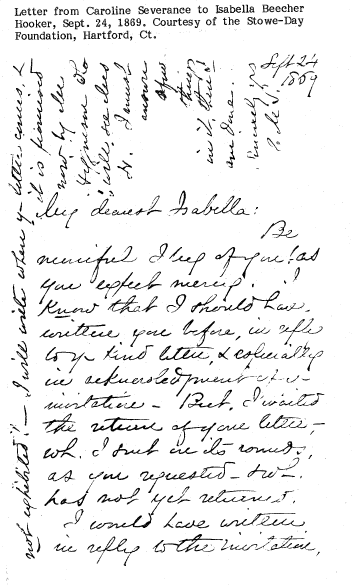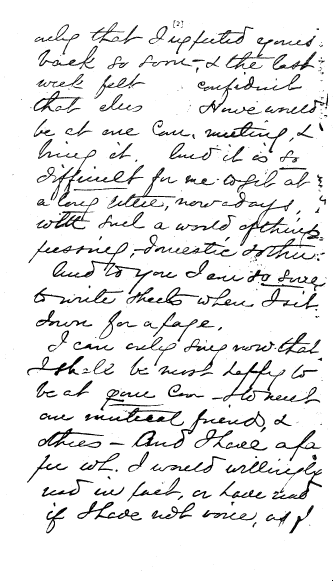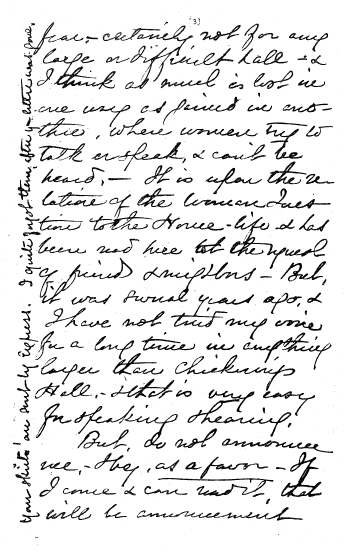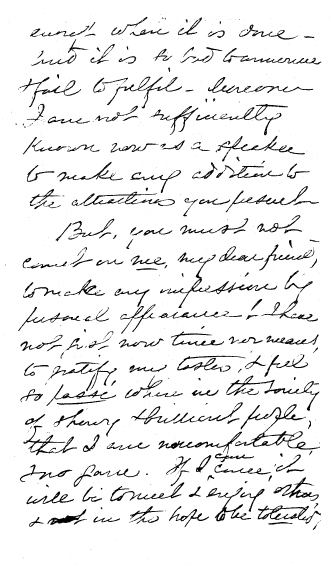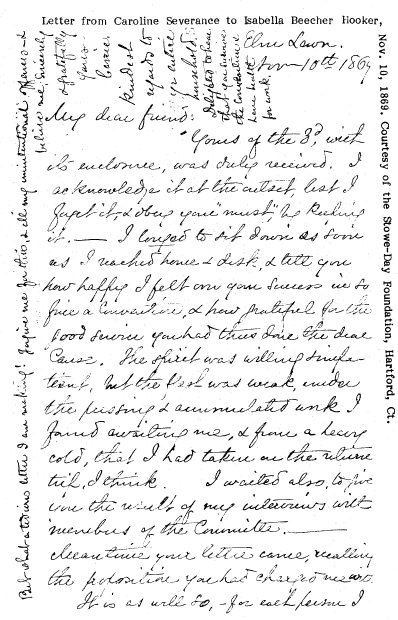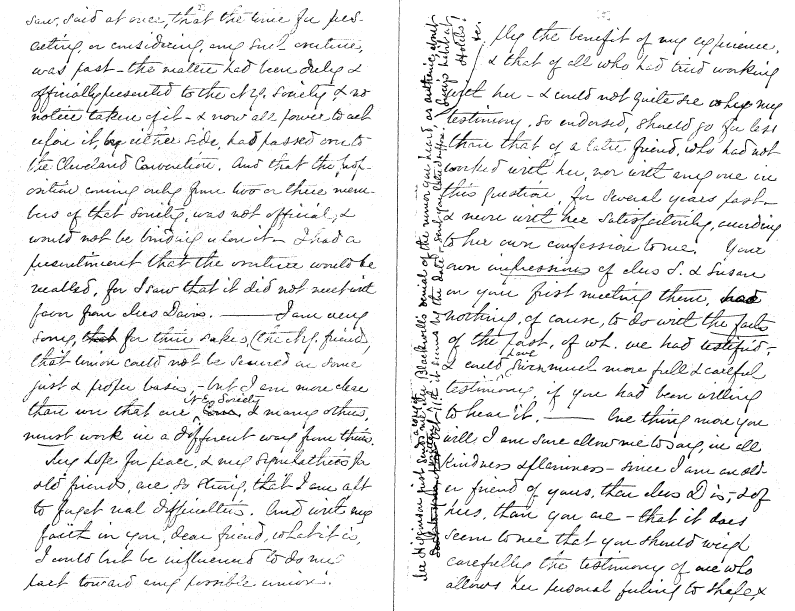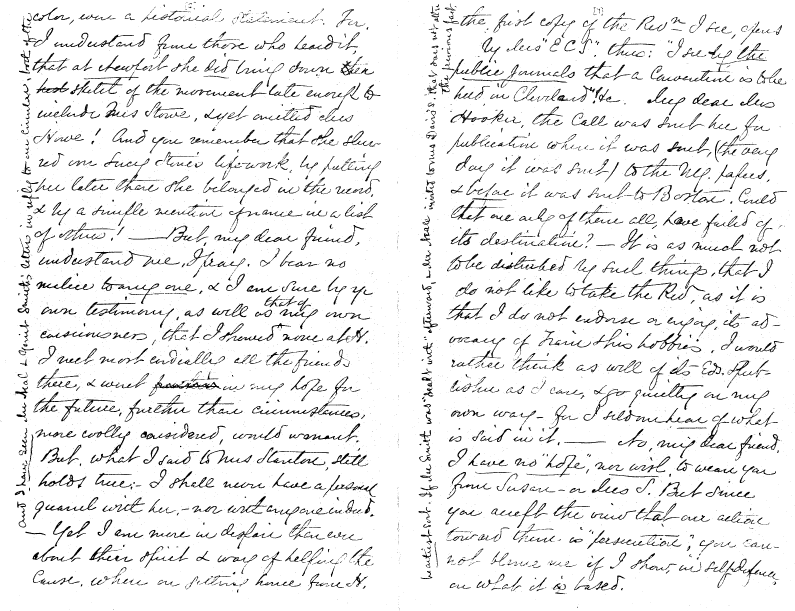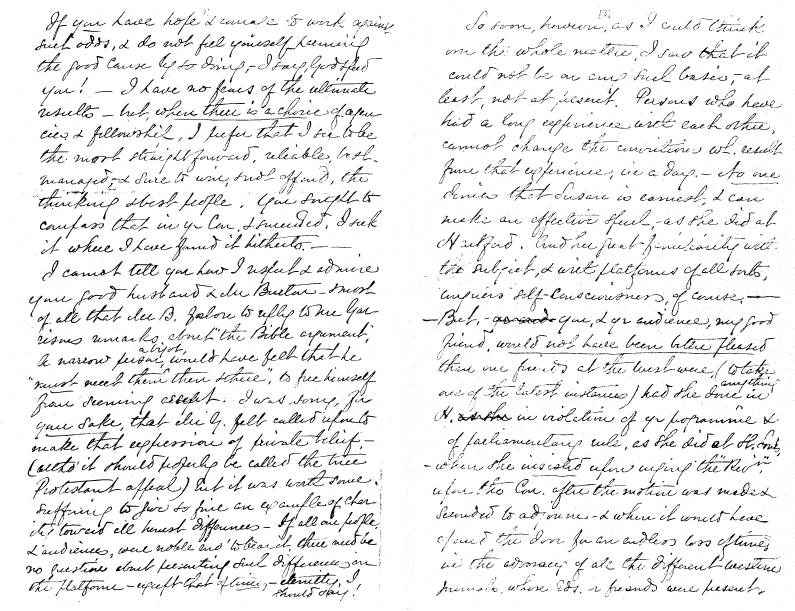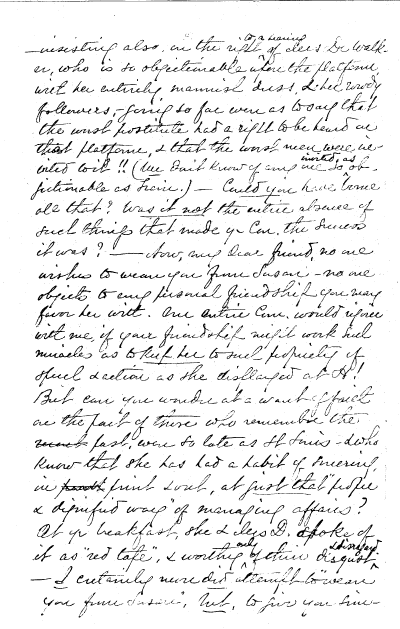|
Caroline Maria Seymour Severance |
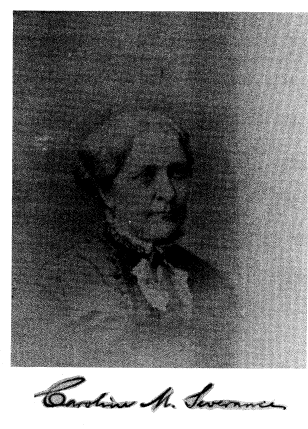
Smith College Archives, Smith College |
The early years of my life are like a long dark night when held up to the years since my marriage to Theodore Severance in 1840. In 1824, when I was only four years old, my father died, and my mother's grief was constant ever since. We lived with my Uncle James in Auburn, upstate New York, who was a strict Presbyterian and would insist on our attendance at every revival meeting, where we would hear about nothing but humankind's unending sinfulness and its eventual doom through eternal punishment. Lucky was I to be able to escape periodically to terms at the Female Seminary at Geneva, where I graduated valedictorian in 1835.
I taught school for some time near Pittsburgh, but when I met Theodore and married, I was at once freed from the bondage to authority, dogmas and conservative ideas. He was in the banking business in Cleveland, and also very concerned with great movements to reform society, rather than simply bemoan its decaying state. Even though we had plenty to do with his business and raising five beautiful children, we worked for the abolition of slavery, temperance, and dietary reform, and joined in the formation of the Unitarian Church in Cleveland in 1854. Unitarianism, I am happy to say, holds the human race in much higher esteem than my uncle's religion, and is less anxious about salvation than it is about doing some good for our fellow man. We also became very active in the woman's rights movement of the time, attending our first convention in Akron in 1851. I was asked to prepare a tract for the Ohio Woman's Rights Association in 1853 arguing for equal property rights, and delivered it proudly at the state convention, in spite of the hooting and laughter from many of the disreputable sort who had infiltrated the audience.
In 1855 we moved to the more refined and intellectual city of Boston, Massachusetts, where, through the Unitarian Church there, we became good friends with some of the great reformers of the land, including Theodore Parker and William Lloyd Garrison. There we planned an organization for woman's rights. My principal work was in the cause of abolition, however; during the 1850's I wrote and delivered many lectures throughout the New England states. During the war between the states, I worked for the Sanitary Commission, and afterward for the Freedman's Bureau which tried to settle the newly freed slaves; and in 1868 I joined with others to form the New England Woman's Club, a lyceum established for the purpose of encouraging the continuation of reform efforts that had been so significant before the war. I served as President of this organization until 1871 when I turned over the chair to my good friend Julia Ward Howe.
I was associated briefly with Susan B. Anthony in 1866 in the American Equal Rights Association struggle to eliminate the word "male" from the 14th Amendment to the Constitution of the United States where the amendment discusses voting rights. However, this struggle was unsuccessful, and perhaps, too much to ask all at one time. It was important to rid this country of all vestiges of slavery first. Had equality for women been part of that amendment, I seriously doubt the states would have ratified it at the time. I, of course, fully intended, and do intend now, to continue to press for the suffrage for women, and for other rights and elevation of women in general. I find it difficult, however, to continue to work with Miss Anthony. With great bitterness she has disassociated herself from the Republican Party whose members have struggled so long for all sorts of important improvements in our country. She has involved herself with George Train, a notorious demagogue whose integrity is in great question, and she presents herself continuously in a way that degrades the movement and causes its leaders to be the objects of contempt and ridicule. Furthermore, her insistence upon a national amendment forcing woman suffrage is just not good strategy. I would prefer to work with individual state and territorial legislatures and build a flood of state laws elevating women to equal citizenship.
In Boston Julia Ward Howe, William Lloyd Garrison, Wendell Phillips, my husband and I have formed the American Woman Suffrage Association to pursue those ends. Also I have established the Moral Education Association of Boston to help to reinvigorate the moral climate of the city. I have worked to get women onto the Boston School Board, and have helped to establish a girls' Latin School. Finally, in 1871, Julia and I formed the Women's International Peace Association with the goal to rid the world of war.
Isabella Hooker of Hartford, an acquaintance of mine from the Sanitary Commission during the war, recently asked me to share the stage with her and Miss Anthony and Elizabeth Cady Stanton as part of Mrs. Hooker's efforts to begin a Suffrage Association in Connecticut. I hesitated at first, but Mr. Garrison and Julia and I joined her at last, hoping that the Connecticut organization would eventually affiliate itself with our Association and thus offer a more decorous alternative (than Susan and Elizabeth's) to legislators in our region as they considered our proposals. I am sorry to say I have not succeeded in persuading Mrs. Hooker of the pitfalls of continued association with Susan and Elizabeth.
I am very proud of the work I have done in my life to better the world in which we live and to elevate the condition of humanity, whether black or white, rich or poor, male or female. I owe a great deal to Theodore's inspiration and encouragement - "the light of my life," - as well as to the kind support of all our good friends in Boston and other parts of the country. Nevertheless, I do not consider myself finished and have not limited my ambition by what, to others, may seem more realistic. Even now Theodore and I talk of moving to the West, perhaps California, to carry on our work organizing people for the improvement of the human condition.
Letter from Caroline Seymour Severance to Isabella Beecher Hooker, Aug. 17, 1869. Courtesy of the Stowe-Day Foundation, Hartford, CT.
